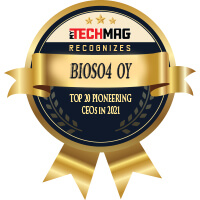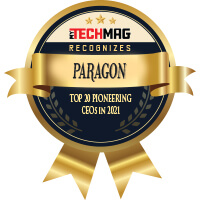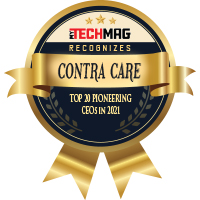
“As a CEO I see myself as a baker of pies. Those who see business as a win/lose proposition are thinking small time and short term.”
Long before genetic engineering became a mainstream technology, Kim Thompson had a vision for harnessing biotechnology to produce spider silk and other bio-materials for the next generation of advanced textiles and materials. At that time the concept was so radical that traditional financing, including VC funding, was impossible. “I attended numerous meetings with VC’s who would tell me that the concept was scientifically impossible. They would all quote the top scientist in the field who had created a list of five reasons why it just could not be done”. Ultimately, Kim used his own money, with modest financial support from friends, to launch Kraig Biocraft Laboratories (KBLB).
Approximately two years following that meager financing, the new company publicly announced the creation of the first transgenic silkworm producing recombinant spider silk. “Suddenly we had achieved what everyone said was impossible. Even the supposed expert in the field, whose public views had blocked us from finance, was eventually convinced by the power of the technology and switched over to using of the silkworm in his laboratory.
While researching the latest discoveries in the field of genetic engineering, Kim developed the idea of applying genetic engineering concepts to material sciences. After reading about the U.S. army’s failed attempts to gain access to commercial quantities of spider silk for soldier protective garments, he began applying himself to finding and engineering a solution. In short, Kim conceived of a transgenic silkworm, which would be modified to produce spider silk protein by changing the silkworm’s DNA coding.
After researching the available technology and creating the necessary coding, Kim approached the University of Notre Dame with a novel concept: a technology spin-in rather than a technology spin-out. Thus was born what proved to be a uniquely valuable collaboration between Kraig Biocraft laboratories and the University of Notre Dame. “Ironically, it was my outsider status which allowed me to make this breakthrough. As an outsider in this field, I was looking at everything with fresh eyes and without the preconceived notions of those who were already entrenched. If I had studied molecular biology from the same textbooks as the ‘experts’, I might have reached their same conclusions.” says Kim.
Kim looks beyond the horizon when it comes to building relationships, not only with potential business partners but with clients, vendors, peers and employees as well. “Most people in the business act as if they need to take a piece of the pie in order to get a piece of the pie. That win/lose mentality is very short sited in my opinion. I see myself as a baker of pies. If I can recruit team members, partners and collaborators to help me bake pies, then there is pie enough to share. This also leads to long term relationships, as everyone who participates benefits. I try to negotiate deals which leave rewards on the table for everyone,” adds Kim, “not because I am nice, but because that is the only way to gather other bakers and keep baking in the long term.”
Kim started his career with the study of economics, which led him to work in the securities industry with Shearson Lehman Brothers. Ultimately, that road led him to the University of Michigan Law School and the founding of a highly successful law firm focused on commercial litigation and civil rights. He credits his training as a corporate trial attorney for the honing of his negotiation and communication skills. He is able to analyze a situation, take calculated risks which often pay off, and negotiate deals in which he endeavors to make all parties benefit. “If someone is thinking to win/lose, they are really thinking short term and missing the bigger picture”.
As a self-made man, Kim has a keen knack for predicting new technologies and future trends. His ability to think outside the box, allows him to achieve business goals often in very unconventional manners, as he recognizes that “tried and true” does not always work, especially in the field of changing technologies. “I have never done things in a conventional manner. Sometimes I wish I could follow an easier path, but that is not my nature. Remaining true to my vision and understanding what I can and cannot do is how I build success,” says the pioneering leader. “While doing things unconventionally is often more difficult, having confidence in oneself and taking the risk can lead to spectacular results. One important factor is knowing when to stay on the traditional path and when to strike out into the bush.”
Today, Kim remains ahead of the curve by relying on his intuition and being able to anticipate challenges. He is able to draw upon his unique skill set to navigate his company to success. To that end, Kim prides himself in being nimble and fleet of foot. “In the end, it is passion and relentless persistence which drives successful entrepreneurs and CEOs,” concluded Kim.







